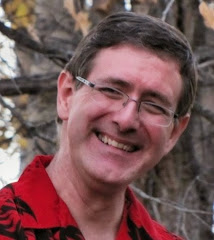I love
reading the letters to the editor in the Observer Magazine. This month had a scathing comment about the
great divide between the Spiritual but not Religious and the Religious but not
Spiritual, sometimes known as the Frozen Chosen, or as Jesus bluntly put it,
hypocrites. Linda Moffat wrote,
“Religious but not spiritual Christians are, by definition, fearful of any
personal growth. This can be a serious
problem when they act to limit opportunities for … spiritual growth… Many
faithful people, young and old, are deeply offended by the shallow, sometimes
punitive and often joyless approach to the Christian faith of the RBNS in our
midst.” Ouch!
Lent is the
time when we take stock of where we are.
Are we being too spiritual and not religious enough? Or are we being too
religious and not spiritual enough? Rev.
Anthony Robinson once asked a fellow minister, “why are African American
worship services so different from our services?” His friend responded, “you
whites think that God needs you. We
blacks know that we need God.”
Ouch! But as Dr. Phil likes to say, we can’t change
what we don’t acknowledge. Or as AA and
Al Anon say, make a searching and fearless moral inventory of ourselves. Now I would be the greatest hypocrite in the
world if I said that I had all the answers and knew how to make life easy. But if we are to be followers of Jesus, we
need to be prepared to follow him into the wilderness to wrestle with our
angels and demons. There are a lot of
people who are living in chaos or feeling like they are drowning. People who are imperfect and flawed. People like you and me.
Are you
drowning in fear, anger, grief or resentment? North American culture loves to
deny that we are drowning.
No, we are
pretending to be perfect Noahs, sailing over the stormy waves of life in a
massive boat we’ve built ourselves, happy in the certain knowledge that we are
God’s favorite person, and we can float above everything life can throw at us,
proud of our superiority and how we have our acts together.
We ignore
the fact that what helped Noah rise above the dangers that threatened to
destroy the world was Spiritual practices, in other words prayer. He was spiritual but not religious. Again and again, he turned to God. How big do I build this boat? What kind of
wood should I use? How do I get the animals aboard? How will I know that it’s safe to leave the
boat? Noah was also very patient, for
that was a huge project when you don’t own a chain saw or a lumber yard. But he was also very independent. There’s no record of subcontractors helping
out. And there’s no second opinion
either. Noah is not seen as a hero by
many rabbis, on the contrary, they much prefer Abraham who bargained God down
from wholesale destruction of humanity by asking God to remember compassion. Noah never protested, never argued, and never
showed compassion for his neighbors or community. Noah was not religious; he did not worship
God in a community committed to support each other in developing their
relationship with God. Maybe Noah fell into
the temptation that he was the only one holy enough to deserve being spared the
chaos of the waters. Ouch!
God saw
differently. God looked at the world and
saw, not a fresh start, but the despairing mothers trying to push their babies
onto the highest rocks they could find.
God saw the husbands trying to keep their wives’ heads above the
water. God saw children in terror for
their lives. The art here is not the
cute two by two parade we think of when we hear the Noah story, but the stark
reality of what a dreadful thing a flood is.
God rejected
Noah’s complacency and indifference to his neighbors. God rejected violence as a solution to
violence. God chose relationship with
imperfect humans rather than destroying them.
God chose to nurture community and relationship.
People who
think, like Noah, that they are perfect, that they have all the answers, aren’t
much different than the people who think they have the right to go into a
school with loaded guns, or that they have the right to execute trespassers and
thieves on their property. People who
think that their truck or their snowmobile are worth more than a human’s life,
and that they are right to be executioners when their property are threatened,
are not following Jesus.
Jesus calls
us to follow him into the wilderness of Lent.
We are called to challenge our assumptions and deepen our relationship
with God and our neighbors. We are called to be both spiritual and religious, practicing our faith and exploring our bibles and our prayer lives. This Lenten season, join me in adding a
spiritual practice to your life. Practice
seeking signs of God’s covenant in this beautiful world. Be brave enough to examine your lives and
bold enough to ask God and neighbors for help when you feel like you are drowning. Experiment with trusting God’s covenant that
the powers that bring hope out of chaos are still here, still available for
anyone who is brave enough to admit that they are not perfect and follow Jesus
into the wilderness of Lent. Amen.


No comments:
Post a Comment